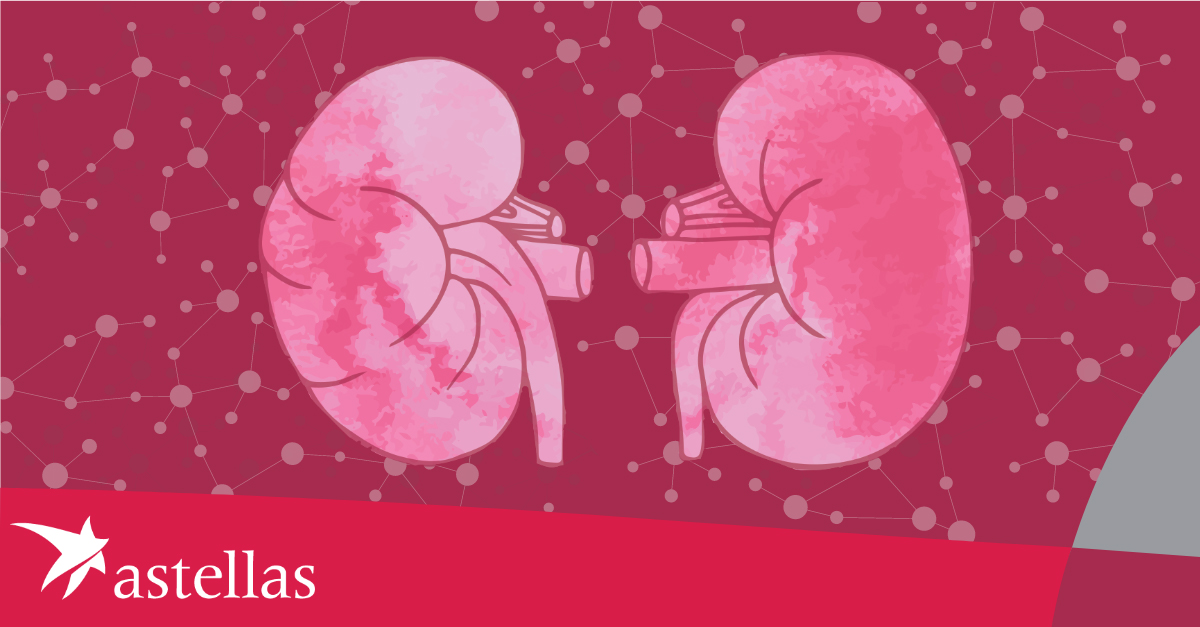You are now leaving XTANDI.com
The website you are about to visit is not owned or controlled by Astellas. Astellas are not responsible for the information or services on this site.

Many know mitochondria as the energy suppliers of our cells. Given the myriad roles that mitochondria play in cellular homeostasis, it is no surprise that defects in mitochondrial function can lead to a broad spectrum of diseases. Yet, it has only been relatively recently that meaningful discoveries have emerged about mitochondrial biology and their role in human disease.
Working with scientific leaders in the field, Astellas has focused on developing mitochondria-directed medicines as an axis for new therapeutic approaches to treat various diseases with high unmet medical needs. Emerging research has established that mitochondrial dysfunction is the main culprit in a variety of human diseases affecting many organs, including muscle, kidney, brain, eyes, and liver. This has opened the door for drug developers like Astellas to take a deep look at mitochondrial biology to gain insight into the disease pathways and mechanisms where mitochondria play a critical and complex role.
Let’s examine the steps that the translational science team at Astellas took to interrogate mitochondrial science and arrive at a new way to treat disease.
Prior to the acquisition of Mitobridge, Astellas studied cutting-edge scientific research examining kidney biopsies from patients with kidney disease. This research revealed links to how mitochondrial dysfunction can be a key driver in both acute and chronic kidney disease. The team at Astellas began pursuing the mitochondria as a therapeutic target for kidney diseases, specifically for acute kidney injury (AKI).
After acquiring Mitobridge in 2018, Astellas has accelerated its efforts to develop a mitochondria-targeted medicine with the following steps:
Within Astellas, the translational science team has recognized the significance of mitochondrial dysfunction and its ability to affect a broad range of disease areas. The team at Mitobridge has a rich history in the mitochondrial research and that experience allows them to pursue new opportunities and expanding on their expertise as part of the Astellas Biomedical innovation Hub. The commitment to this science and to the needs of patients is felt throughout the entire organization as Astellas looks forward to future discoveries and pipeline developments.
It’s been an exciting and rapid journey from an original hypothesis around a mitochondrial target to the initiation of a Phase 2 trial for a Fast Track-designated drug candidate for AKI. Astellas hopes to cultivate many more mitochondria-targeted medicines for other diseases to hopefully create and deliver value for patients.
 |
Get only the email alerts you want.
For media inquiries and reporter requests, please click here to fill out a request form.
Our communications team will respond to verified media requests within 24-48 hours as appropriate.
If you are not a reporter and need assistance, please visit our contact us page that includes information for patients, healthcare providers and researchers.
This website is intended for U.S. residents only. This website contains information about products that may not be available in all countries, or may be available under different trademarks, for different indications, or in different dosages. Nothing contained herein should be considered a solicitation, promotion or advertisement for any drug including those under development. Any information on the products contained herein is not intended to provide medical advice nor should be used as a substitute for the advice provided by your physician or other healthcare provider.
The site uses cookies to provide you with a more responsive and personalized service and to analyze site traffic. By using this site, you accept our use of cookies as described in our privacy policy. Please read our privacy policy for more information on the cookies we use, the processing of your personal data and how to delete or block the use of cookies.